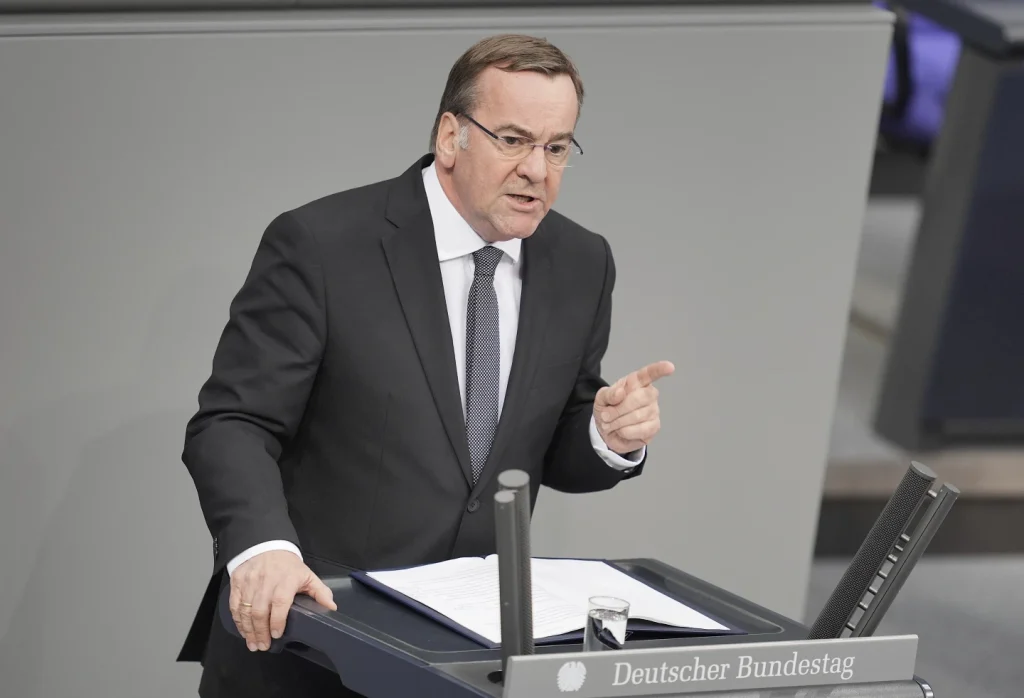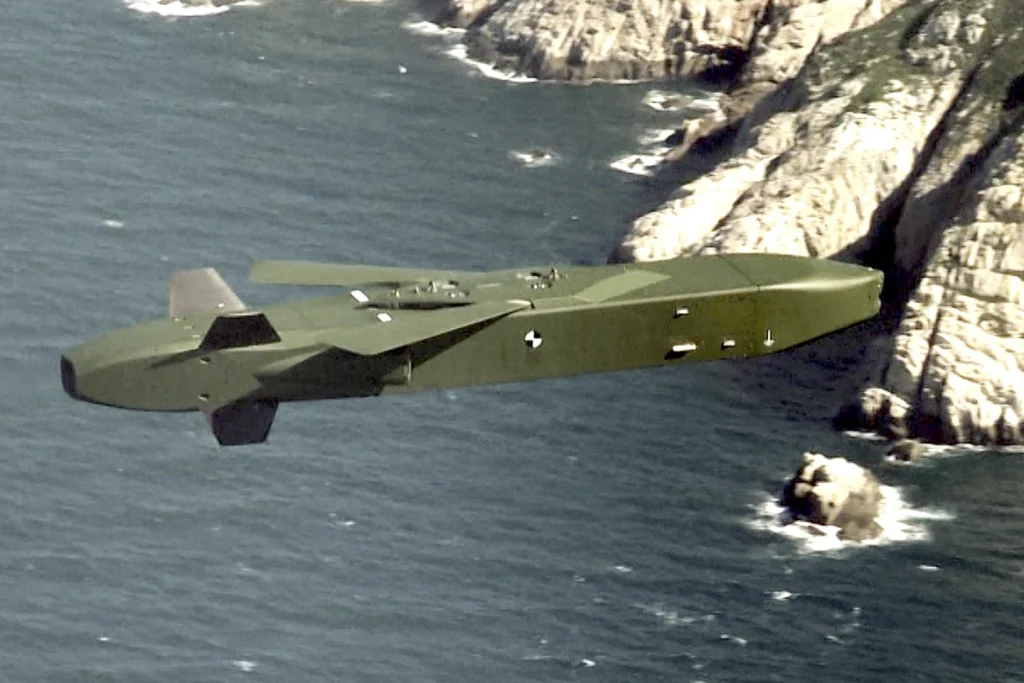The recent events surrounding the leaked audio recording of German military officers discussing the potential use of Taurus long-range missiles in Ukraine have caused a stir in international relations.
The timing of the leak, on the same day as the funeral of Russian opposition leader Alexei Navalny, has added another layer of complexity to the situation.
The fact that the conversation was never intended for public consumption has not only embarrassed Germany but has also raised serious concerns about the security of its communications.
The response from Moscow, with threats leveled against Germany, has only served to escalate tensions further. Russian Foreign Ministry spokesperson Maria Zakharova’s warning of dire consequences for Germany has put pressure on German officials to address the situation.
In a firm response, German Foreign Minister Annalena Baerbock pointed out that Russia’s aggression towards Ukraine is the root cause of the conflict, highlighting the need for a diplomatic resolution to the ongoing crisis.
The incident serves as a stark reminder of the fragile nature of international relations and the importance of maintaining open and transparent communication channels to prevent misunderstandings and potential conflicts.
Equipped with stealth technology that makes them less visible to detection, the missiles being discussed in this context boast a formidable range of up to 500 kilometers (equivalent to 310 miles), a capability that could significantly enhance Ukraine’s strategic leverage against Russia, particularly in the Black Sea region and other key areas of interest.
These cutting-edge missiles, crafted through a collaborative effort involving German and Swedish expertise, are poised to strike deep into Russian territory from Ukrainian soil, thereby augmenting the country’s defensive and offensive capabilities.
Referred to as Taurus, a name derived from the acronym Target Adaptive Unitary and dispenser Robotic Ubiquity System, these missiles symbolize precision and power in military parlance.
Ukraine’s pursuit of these advanced armaments underscores its commitment to bolstering its defensive arsenal in the face of escalating tensions with Russia.
This request for missile support from Germany comes in the wake of similar assistance provided by Britain and France, who dispatched long-range Storm Shadow and Scalp cruise missiles, respectively, to bolster Ukraine’s defense capabilities.
The Storm Shadow missiles, with a range exceeding 250 kilometers (155 miles), offer Ukraine the strategic advantage of striking deep into enemy territory, including Russia-occupied Crimea, without crossing ethical boundaries by pledging not to deploy these weapons against Russia itself.
The geopolitical implications of these developments are profound, underscoring the evolving dynamics of regional power play and the imperative for nations to fortify their military capabilities in an increasingly volatile global landscape.
Germany, as the second-biggest supplier of military aid to Ukraine, has been increasing its support to the country. However, German Chancellor Olaf Scholz has taken a firm stance against sending Taurus missiles to Ukraine.
He has expressed concerns that such a move could potentially drag Germany into the conflict. Scholz emphasized the importance of ensuring that German soldiers are not associated with targets that the Taurus missiles could reach.
Despite some pressure from members of the opposition and his own coalition, the idea of sending the missiles is not widely supported by the public.
Speculation in the German media suggests that Scholz’s decision may be a strategic move to position himself as a “peace chancellor” in the upcoming European Parliament elections in June.
This decision highlights the complexities of balancing international obligations with domestic political considerations.
The recent concerns surrounding the potential escalation of war have garnered significant attention and apprehension among the public.
As highlighted by the news magazine Der Spiegel, Chancellor Scholz has been attuned to these sentiments and aims to reassure the populace that their worries are acknowledged.
However, beyond the civilian fears, military strategists are grappling with a distinct set of worries. Gustav Gressel, a senior policy fellow at the European Council on Foreign Relations, underscored a critical issue earlier this year regarding the absence of a successor to the Taurus missile in Germany.
While the U.K. and France are progressing with the development of successors to their respective missiles, the lack of a replacement for the Taurus raises concerns about potential depletion of missile stocks.
Gressel further posited that the operational visibility of the Taurus missile in Ukraine could provide the Russians with valuable insights into its countermeasures and stealth capabilities, posing a significant security risk.
The leaked 38-minute audio recording, made public by Margarita Simonyan of Russian state-funded TV channel RT, has added another layer of complexity to the already tense geopolitical landscape.
Released on the day of Navalny’s funeral, the recording has surfaced just ahead of Russia’s impending presidential election, fueling speculation and unease about the underlying implications and potential ramifications of the leaked information.
In the audio recording, the head of Germany’s air force, Ingo Gerhartz, is engaged in a discussion with three colleagues regarding deployment scenarios for Taurus missiles in Ukraine.
This conversation took place on February 19, as reported by Simonyan. The military officers deliberated on the potential use of Taurus missiles by Kyiv in the event of a Russian invasion, highlighting the need for technical support from Germany.
The dialogue also touched upon the logistics and implications of such a deployment. Prior to delving into the main topic, the participants engaged in casual small talk, with one individual even mentioning the humidity in Singapore where they were connecting from.
This exchange provides insight into the strategic considerations and collaborative efforts being made in response to the escalating tensions in the region.
The four individuals then proceeded to diligently prepare a comprehensive briefing on the Taurus weapon system for Defense Minister Pistorius, demonstrating a high level of coordination in their messaging and agreeing to create slides to enhance the visualization of the situation at hand.
During their discussions, one officer raised a crucial question regarding the potential political decision to support Ukraine with the Taurus missiles, prompting a thoughtful exploration of the practicalities involved in such a scenario.

They delved into the complexities of delivery logistics, training requirements, and the critical issue of timing. The officers engaged in a detailed analysis of Ukraine’s specific needs for the system, highlighting potential targets like the Kerch bridge connecting Russia and occupied Crimea.
The mention of training to target such a significant structure underscored the extensive preparations that would be necessary.
Moreover, the officers carefully considered the implications for German politicians, emphasizing the importance of avoiding direct military involvement.
They acknowledged the possibility of German soldiers facilitating the rapid deployment of the Taurus missiles, while also noting the time-intensive nature of training Ukrainian forces to independently operate the system.
The recording of these discussions has sparked significant attention, with German officials refraining from disputing its authenticity, indicating the seriousness of the situation.
The Defense Ministry’s subsequent announcement of an investigation and Chancellor Scholz’s acknowledgment of the gravity of the matter underscore the need for swift clarification.
Defense Minister Pistorius condemned the leak as an act of “information warfare” designed to sow discord within Germany, emphasizing the importance of maintaining unity in the face of such tactics.
The timing of the leak, coinciding with Navalny’s funeral, further underscores the nefarious intent behind such actions, highlighting the need for vigilance in the face of hybrid attacks aimed at undermining Western cohesion.
